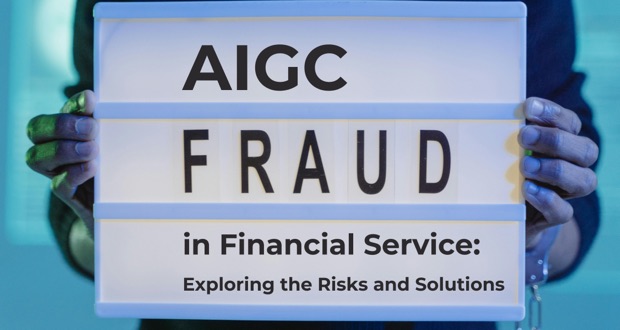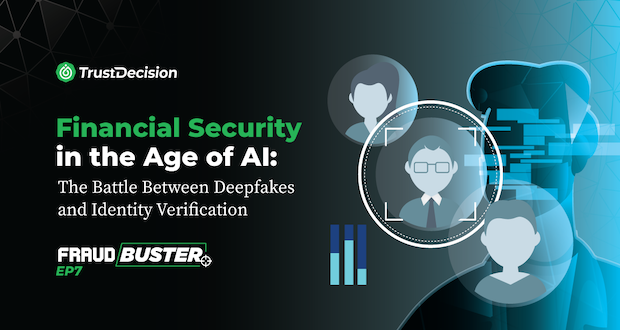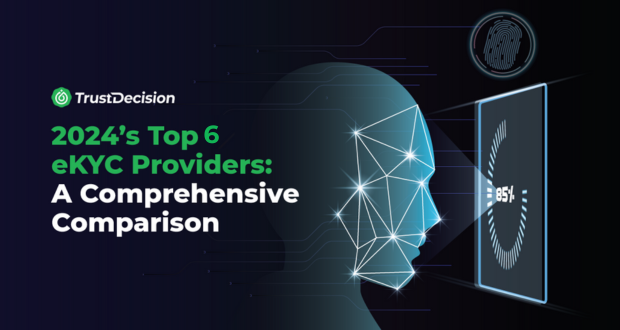Introduction
In today’s rapidly evolving financial landscape, Artificial Intelligence and Machine Learning (AI/ML) play a pivotal role in shaping business strategies. However, with great power comes great responsibility. As we delve into the world of AI-driven financial services, we encounter a critical challenge: AIGC fraud. In this article, we’ll dissect the risks associated with AIGC fraud and explore innovative solutions to safeguard businesses.
Understanding AIGC Fraud
AIGC Defined
AIGC (Artificial Intelligence and Generative Content) refers to the intersection of AI and content generation. It encompasses technologies like natural language processing (NLP), deep learning, and generative adversarial networks (GANs). These tools empower financial institutions to automate processes, personalize customer experiences, and enhance decision-making.
Implications for Businesses
While AIGC offers immense potential, it also introduces vulnerabilities. Fraudsters exploit AI-generated content to manipulate systems, deceive customers, and compromise security. Let’s examine how they do it.
How Fraudsters Exploit AIGC Technology
Deepfakes: Crafting Convincing Illusions
Deepfakes are AI-generated videos or audio clips that convincingly impersonate real individuals. In financial services, fraudsters create deepfakes to deceive voice recognition systems, gain unauthorized access, or manipulate transactions. For instance, a criminal could use a deepfake to impersonate a high-ranking executive and authorize fraudulent fund transfers.
Social Engineering
AIGC-powered chatbots and virtual assistants interact with customers seamlessly. Fraudsters exploit this by crafting convincing narratives to extract sensitive information. Imagine a chatbot posing as a bank representative, asking unsuspecting customers for account details or passwords. Social engineering attacks like these can lead to data breaches and financial losses.
Evasion of Behavioral Biometrics
Behavioral biometrics analyze user behavior patterns (keystrokes, mouse movements) to detect anomalies. Fraudsters leverage AIGC to mimic legitimate user behavior, evading detection. By subtly altering their interactions, they avoid triggering alarms. For instance, an AIGC-powered bot might simulate a genuine user’s transaction history, making it challenging to differentiate between legitimate and fraudulent activity.
Fintech Solutions for AIGC Fraud
In today’s rapidly evolving financial landscape, fintech companies are at the forefront of leveraging cutting-edge technologies to combat fraud. Artificial Intelligence (AI) and machine learning algorithms play a pivotal role in assessing credit risk, monitoring transactions, and streamlining credit processes. Let’s delve deeper into these solutions, backed by real-world examples from the last five years.
Credit Risk Management
In the realm of credit risk management, AI in banking has transcended traditional methodologies. This innovative approach employs comprehensive data analysis to identify potential risks, thus fortifying the financial institution against potential pitfalls.
AI algorithms are capable of deciphering complex patterns in large volumes of data, providing predictive insights that enable preemptive actions against potential fraudulent activities. This synthesis of technology and credit risk management mitigates potential damages, ensuring the financial integrity of an institution.
Transaction Monitoring
The scope of transaction monitoring has expanded exponentially with the advent of AI. Manually scrutinizing thousands of transactions for inconsistencies and anomalies is not only labor-intensive but also error-prone.
AI-powered transaction monitoring, on the other hand, is a testament to the strength of fintech solutions against AIGC fraud. This technology scrutinizes millions of transactions, swiftly identifying irregularities and ensuring compliance with stringent regulatory standards.
End-to-End Credit Process Acceleration
Time efficiency is of paramount importance in financial services. A lengthy credit process not only hinders operational efficiency but also provides an opportunity for fraudulent activities to thrive.
Fintech offers a solution to this predicament by accelerating the entire credit process. With AI integrated into the system, identity verification, creditworthiness assessment, and finalization of credit applications are expedited, leaving no leeway for fraudulent interventions.
As the menace of AIGC fraud in financial service continues to escalate, a strategic approach embodied in fintech solutions for AIGC fraud prevention becomes indispensable. These solutions, coupled with stringent data privacy policies, enable financial institutions to stay ahead of potential threats, ensuring their resilience in the face of evolving financial challenges.
AIGC Solutions for Fraud Prevention
Machine Learning and Adaptive Approaches
Machine learning models continuously learn from data. They adapt to emerging fraud patterns, enhancing detection accuracy. For instance, anomaly detection algorithms identify unusual behavior, even if fraudsters evolve their tactics.
TrustDecision’s KYC++ Solution
1. Biometrics Authentication (Liveness Detection & Face Comparison)
TrustDecision’s KYC++ leverages biometrics to authenticate live individuals. By comparing facial features with KYC documents, it ensures the person’s identity. Moreover, it prevents spoofing and impersonation, significantly reducing the need for manual verification.
2. Document Verification (Optical Character Recognition - OCR)
Efficient onboarding meets compliance with TrustDecision’s document verification. The OCR technology captures KYC documents, extracts relevant data, and verifies it accurately. Financial institutions benefit from fast and accurate customer onboarding while maintaining regulatory standards.
3. Device Check (Device Fingerprint)
TrustDecision’s device check brings an extra dimension to security by going the extra mile. It doesn’t just identify unique device IDs for security. The system dives deep into the technical specifics—including hardware attributes, software configurations and network properties - building a comprehensive profile of each device to detect anomalies and ramp up fraud protection.
Advantages of TrustDecision’s KYC++ Solution
- Enhanced Efficiency and Accuracy: TrustDecision’s KYC++ streamlines fraud prevention, reducing false positives and manual effort. Financial institutions can focus on legitimate transactions while maintaining robust security.
- Beyond Traditional KYC: KYC++ offers capabilities beyond traditional identity verification. By integrating biometrics, document verification, and device checks, it creates a holistic security framework.
Regulatory Compliance and Data Privacy
Compliance Measures
Regulatory compliance remains paramount. Know Your Customer (KYC) procedures, Anti-Money Laundering (AML) checks, and General Data Protection Regulation (GDPR) guidelines ensure transparency and security. Fintech firms must adhere to these standards.
Data Privacy
Protecting customer data is non-negotiable. Encryption, access controls, and secure data storage prevent unauthorized access. Fintech companies must prioritize data privacy to maintain trust.
Conclusion
As AI continues to revolutionize financial services, vigilance against AIGC fraud is essential. By adopting robust solutions, staying compliant, and safeguarding data, businesses can navigate this dynamic landscape with confidence. Remember, the future of finance lies at the intersection of innovation and security.














